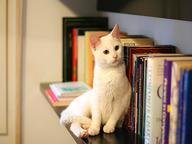Quiz Answer Key and Fun Facts
1. The title of Thomas More's book, "Utopia", comes from the Greek, meaning what?
2. Utopia was originally located on the edge of what?
3. What is the name of the traveler who tells More about Utopia?
4. In Utopia, limits are placed on the number of people per household. What happens if there are too many people in a household?
5. Which of the following is NOT true of Utopia?
6. Each citizen must learn one of four essential trades on Utopia. Which of the following is NOT one of those trades?
7. In Utopia, all able-bodied citizens are required to work how many hours a day?
8. In Utopia, what is gold used for?
9. In Thomas More's Utopia, there is no slavery.
10. Which of the following crimes is NOT properly matched with its punishment in Utopia?
Source: Author
skylarb
This quiz was reviewed by FunTrivia editor
looney_tunes before going online.
Any errors found in FunTrivia content are routinely corrected through our feedback system.

